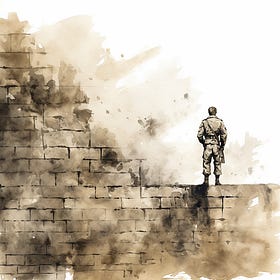The Anatomy of Offense – What on Earth is the issue with people who are constantly offended?
In everyone's environment, there are family members, friends, and colleagues who are almost guaranteed to take offense during interactions, therefore we often find our encounters with them burdensome and exhausting. The question is, why are they like this?
In case of these people – be it family members, friends, or colleagues – one can almost always expect that out of two interactions, at least in one, they will take offense over something that seems insignificant to others.
Such behavior brings great stress into relationships, as one can never truly anticipate what to expect before meeting these touchy persons. Sometimes they behave normally, sometimes they are offended or still hurt as an aftermath of a previous offense. One thing is for sure, after having some history with them we start to walk on eggshells around them.
The root cause of offense
From my observations, adults who constantly get offended are simply unable to get what they need, and therefore, they try to emotionally blackmail in this manner. They might need more attention, more time spent together, or more acknowledgment. Whatever they're lacking, most times they are not even aware of it. They justify their feelings of hurt due to something someone else did or didn't do, and they always over amplify its importance. Yet, most times it’s not at all about someone else’s action or inaction.
Upon closer look, it's evident that an overlooked birthday, a promised but canceled event, or an unintended remark about our weight won't shatter our lives. What crumbles is our own sense of importance, value, attractiveness, lovability, etc. We feel that we are not significant enough to have our birthday remembered, valuable enough for someone to want to spend time with us, or attractive enough, etc.
The offense always amplified because the perceived loss of some value. It's not the forgetfulness, not the comment about the weight, not the freed-up afternoon that's the issue. The problem is equalizing these events with our self-worth.
Our self-esteem shouldn’t be dependent on who called after a gathering or who told us countless times how incredibly good of a cook we are. If we are good cooks, we just are. It doesn't need to be repeated a hundred times.
Of course, it feels good when someone acknowledges it, which is fine. But if the number of calls after hosting a gathering becomes our measure of self-worth, we are in trouble. Not to mention, when someone takes offense, perhaps due to a missed praising call, they are essentially demanding an undue prominence in the other person's life, expecting constant praise and gratitude.
I understand this sounds rather harsh initially, but those who are constantly offended are essentially trying to achieve something impossible with manipulation. They want the offending party to provide them with the attention, love, care, and recognition that they didn't receive from their parents as children. This is why their solid sense of self-worth wasn't established. (More on deprivation traumas in "Deprivation Traumas and Their Surprising Consequences.")
However, the underlying issue is that they subconsciously still expect this from their parents, so no matter how much their partners, friends, or family members acquiesce to various demands to avoid the storm, they can never truly fill this void. Relationships, as a result, become rigid and lifeless, defined by the ever-increasing rules set by the offended. Even though everyone tries to abide by this expanding set of rules, the one who sets them is never satisfied. They demand more and more rituals, and over time, being together turns into a mere unpleasant obligation.
The solution
The solution lies in healing the childhood wounds, but unfortunately this healing is something only the touchy person themselves can do. Though this isn’t a quick process, I believe it's the only truly effective method. I know that hundreds of books suggest solutions like standing in front of a mirror telling ourselves repeatedly how valuable and unique we are, or leaving little notes on our desk listing our good qualities. In my opinion, these methods require a lot of energy and don't provide a lasting solution.
We must recognize the underlying reasons, experience the pain of deprivation, and retroactively fill those tanks of love, attention, and recognition that are empty. The next time someone takes offense at us, approach them with empathy, as they are grappling with deep pain, but don’t let them take control over our life. Everybody has the right to protect their boundaries. (More on border defense in "Border defense – Do our psychic bastions even exist?")
– Eszter
Related Articles
Deprivation Traumas and Their Surprising Consequences
When we typically hear the word trauma, what usually comes to mind is an event that overwhelms the human nervous system with an excess of something. Much less often do we consider the type of trauma where there is an insufficient amount of something. However, this also exists, and indeed it does!
Border Defense — Do Our Psychic Bastions Even Exist?
Many times, I’ve been in situations where someone overstepped my boundaries. Yet, I didn’t activate my defenses. Usually, I would just endure the situation, trying to put on a brave face, hoping to avoid conflict. The conflict which wasn’t my doing but caused by the other person’s insensitivity or malice. For a long time, I felt there was nothing wrong with this. After a few days, I’d move on. I never considered how much trouble and tension I caused myself during those days. I never thought about how I perpetuated situations that were already miserable to experience. As for why I couldn’t defend myself, I had no answer.
Home | Notes | Articles | Eszter’s Magic | Literary Bonbons | Short Stories and Guides | Beyond the Book | EWE Issues | Archive | About




